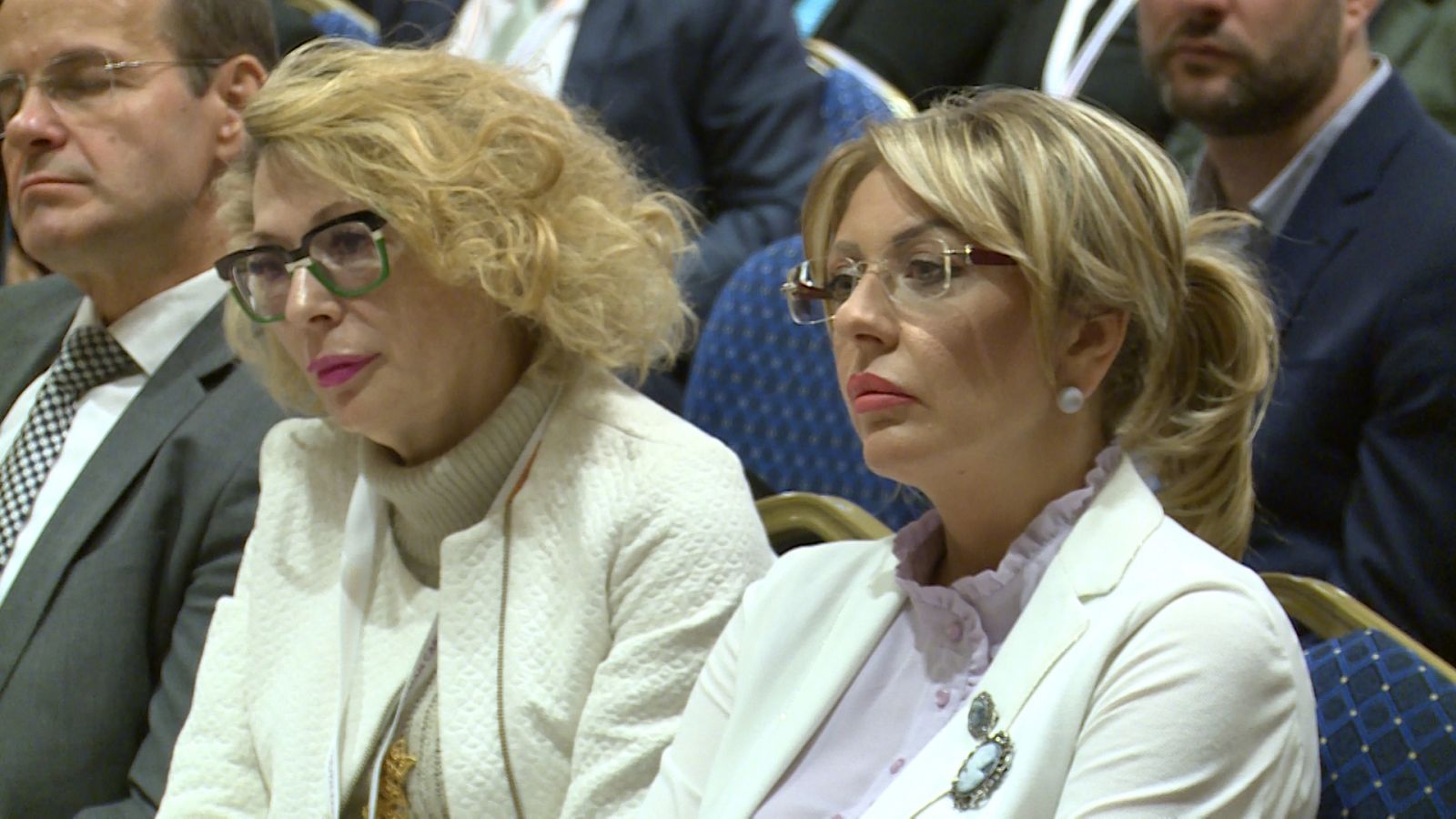
The Government of the Republic of Serbia has been promoting a sustainable development policy for very a long time, not only as a matter of population dynamics and human capital, but also as part of the UN 2030 Agenda Sustainable Development Goals, stated Minister of European Integration Jadranka Joksimović today.
In her statement after the conference "Population Dynamics, Human Capital and Sustainable Development in South-East Europe" in Sarajevo, Joksimović said that the issue of sustainable development was crucial not only for our country and the countries of the region, but also a topic that was seriously addressed by all states in the world, in particular Member States of the European Union.
“The Government of the Republic of Serbia has taken a responsible approach to the issue of sustainable development, first and foremost, having in mind that we are leading an economy of well-being for our citizens. The entire narrative concerning fiscal consolidation measures and all the parameters that have been improved only make sense when people feel they are living better and have a clear future in their country; Serbia already has the first indicators of this positive trend”, underlined Joksimović.
She recalled that Serbian President Aleksandar Vučić had presented our Voluntary National Report on the implementation of the Sustainable Development Goals at the UN General Assembly this year.
"We are one of the 47 countries that have prepared this report, and these sustainable development goals are actually the broadest platform of the aforementioned economy of well-being. This includes poverty reduction, water and infrastructure access for all, gender equality, employment, combating climate change, society institution-building, as well as the rule of law. These are the goals that the Government of the Republic Serbia pursues in its daily work”, indicated Joksimović.
She highlighted that Serbia was also implementing a policy of sustainable development through the process of European integration, as a favoured country for EU membership and a frontrunner in the implementation of reforms in relation to other countries in the region, adding that it had “delved deep into that process”.
“We have opened almost half of the chapters, we are continuing to work intensively on this and I expect a solid continuation of the dynamics in the coming period, predominately through all these reforms and through the fact that the UN 2030 Agenda has also become part of the EU political framework”, stated Joksimović.
She pointed out that Serbia was achieving the Sustainable Development Goals through the process of European integration and the recently announced National Investment Plan, thus providing the opportunity to retain people in Serbia who were, as she underlined, our greatest capital.
“All other types of capital depend on human capital and investment into people and their feeling of a good life and well-being in their own country”, said Joksimović.
She stated that she did not like the fact that people in the region frequently said that “the best from the region had left”, estimating that this did not represent good rhetoric.
“All those who remained in our countries helped to rebuild these countries after a difficult period. In addition, they have demonstrated willingness, human potential and capacity to revive our economy and the country by supporting responsible governments that undertake activities both in the process of European integration and reforms”, stressed Joksimović.
She emphasized that today's conference should not serve as a platform for “constant mourning” and posing questions such as “What shall we do now?”, but a space to utilise what we have in the best possible way.
“This will be noticed by those who have left as well and this will motivate them to return to Serbia and the region”, stated Joksimović.
She believed that the initiative of the President of the Republic of Serbia, “Little Schengen”, was a good pattern for free movement of economic capital, but above all, human capital, between Serbia, Albania and North Macedonia, also intended for all those countries that wanted to get involved.
“In this manner, we promote diplomacy of the people, the employment of resources we have, in hope that we will then all together gain even more”, concluded Joksimović.
The conference “Population Dynamics, Human Capital and Sustainable Development in South-East Europe”, held in Sarajevo, was organized by the Ministry of Foreign Affairs of Bosnia and Hercegovina and the UN Population Fund’s Regional Office for Eastern Europe and Central Asia, with the support of the Regional Cooperation Council.
Source: Tanjug








